Report Launching Event on “Challenges to Human Rights Defenders in Bangladesh”
23 July 2023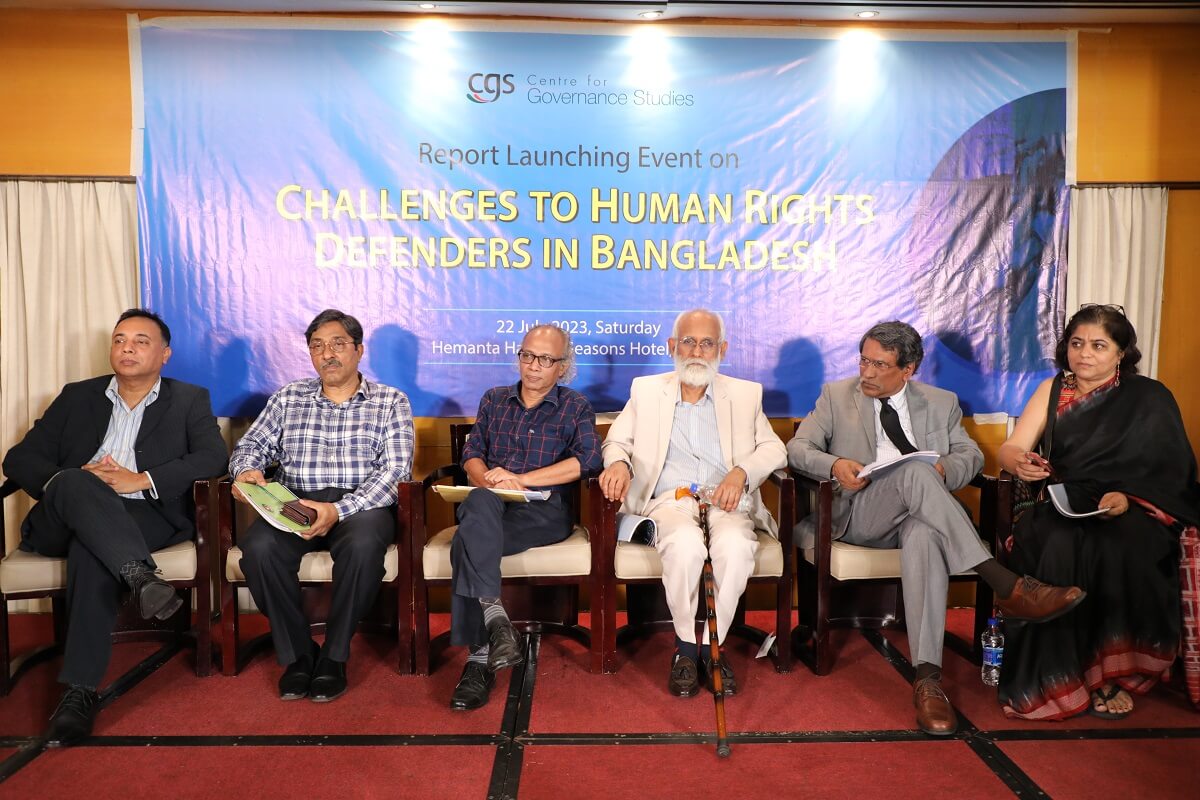
On Saturday, 22 July, the Centre for Governance Studies (CGS) hosted a report launching event in Bangladesh titled “Challenges to Human Rights Defenders in Bangladesh”. The event took place in a hotel in Dhaka adorned by prominent guests and personnel from different esteemed sectors. The distinguished speakers include Dr. Ali Riaz - distinguished Professor Illinois State University, USA and member of the Advisory Board of the Centre for Governance Studies (CGS); Dr. Kamal Uddin Ahmed - Chairman of the National Human Rights Commission (NHRC); Advocate Z.I. Khan Panna - Chairperson of Ain o Salish Kendra (ASK); Nurul Kabir - Editor of New Age; Barrister Sara Hossain - Honorary Executive Director of BLAST; and Zillur Rahman, Executive Director, Centre for Governance Studies (CGS). Besides, representatives from the USA, the UK, and European Union along with from several Embassies and High Commissions, civil society members, journalists, lawyers, human rights activists, and academicians were present at the event. The program was hosted by Roman Uddin, Research Associate, Centre for Governance Studies.
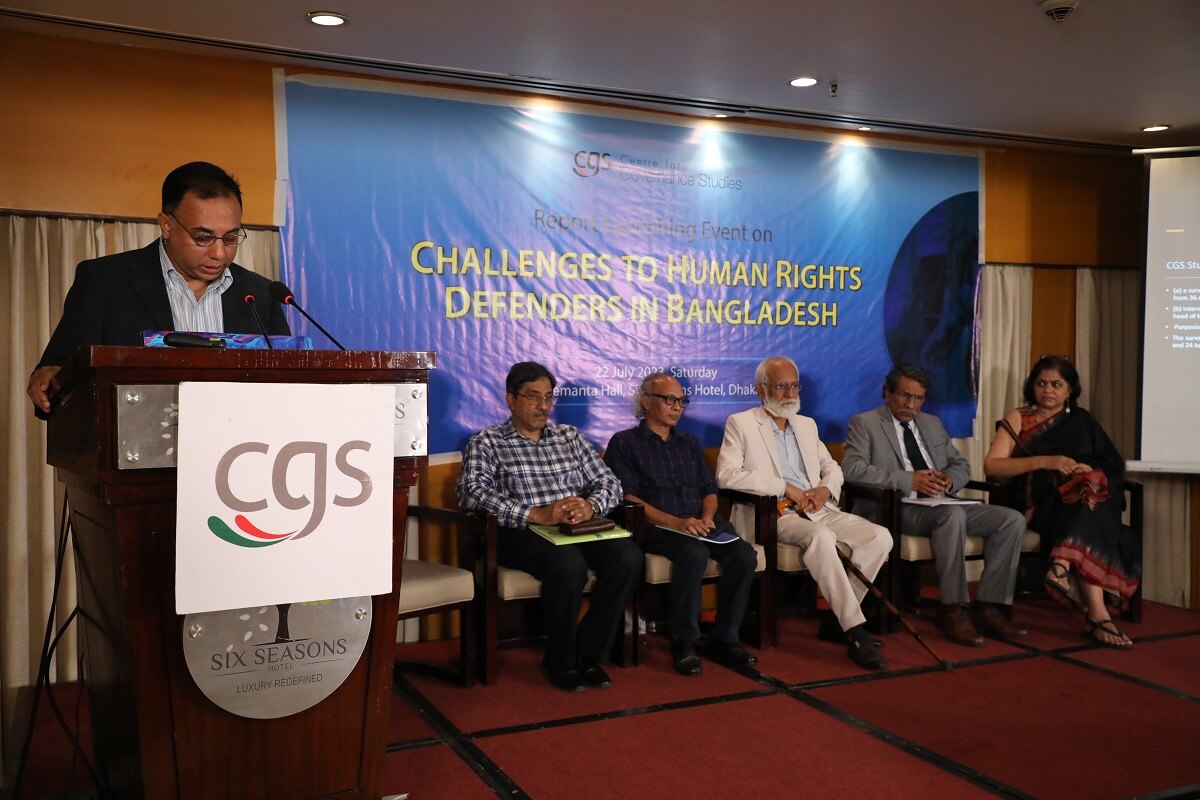
The discussion began with an introduction from Zillur Rahman, the Executive Director of CGS. He extended a warm welcome to all attendees on behalf of CGS. The study specifically examined human rights, with a particular emphasis on Human Rights Defenders in Bangladesh. He stated that the treatment of human rights defenders served as a reliable indicator for assessing a country's human rights situation. Rather than addressing and resolving the issues within our country, those in positions of authority have chosen to deflect blame towards other nations and, at times, deny the existence of human rights concerns in Bangladesh. The denial and deflection observed in Bangladesh suggest that human rights abuses are supported by the government. The reality will become more apparent as we present our main study findings. He expressed his gratitude to Professor Ali Riaz and his team for their exceptional dedication.
Dr. Ali Riaz, the principal investigator for this study presented the report summary. The presentation of the report focused on the relevance of the study that was based on the situation of the HRDs at the grassroots level and the prominent national-level human rights activities. The report conducted an extensive survey of 50 defenders across 36 districts and asked them about their perceptions. They talked about the main stakeholders in their activities, the scope of their work, the impediments they face, the threats they feel, and the violations that occur to them. The presenter and lead investigator of the report, Dr. Ali Riaz expressed the hope to work as a messenger of these defenders so that their fear gets acknowledged and state-level initiatives be taken to protect them. He concluded his presentation by quoting, “let us stand by them and try to do what is absolutely necessary”.
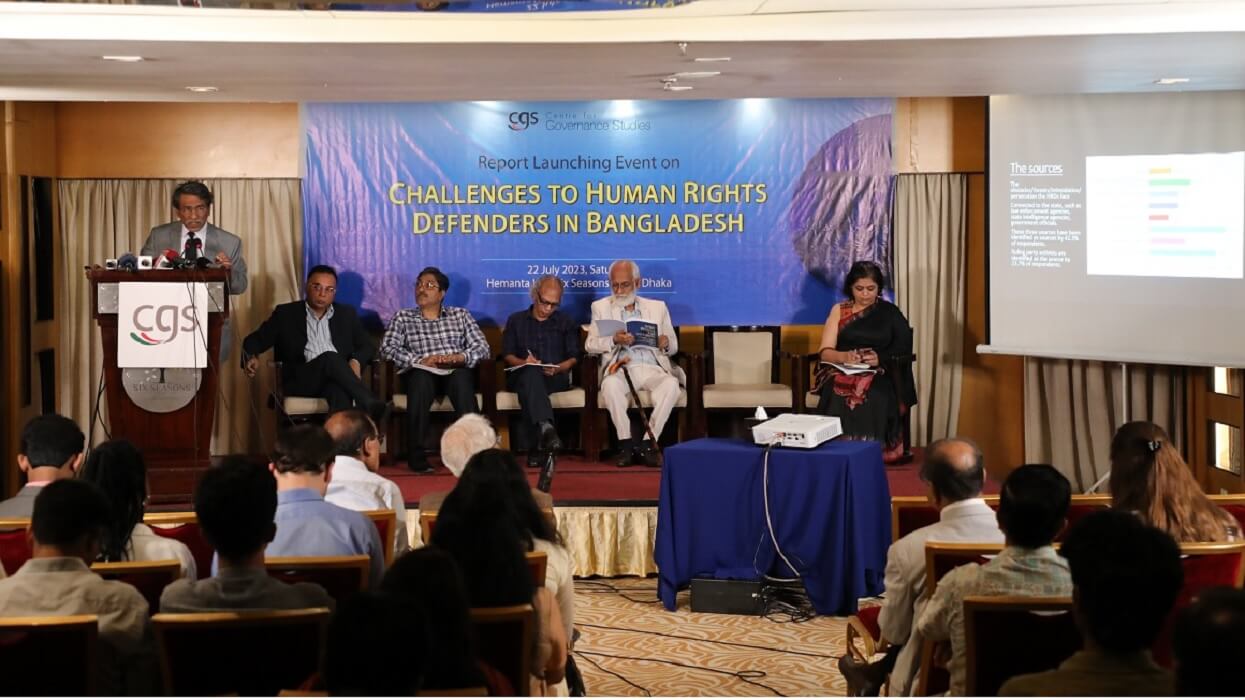
Barrister Sara Hossain emphasized that protecting human rights means the protection of life, livelihood, and protection. She talked about the reduced scopes of the defenders where they are restricted to economic assistance for realizing their work using various complicated mechanisms. Laws need to be implemented to recognize their hard work and make the best use to ensure the smooth running of their work. Renovations of several laws and dialogues among the stakeholders are needed to include the stakes of these defenders in the state regulations.
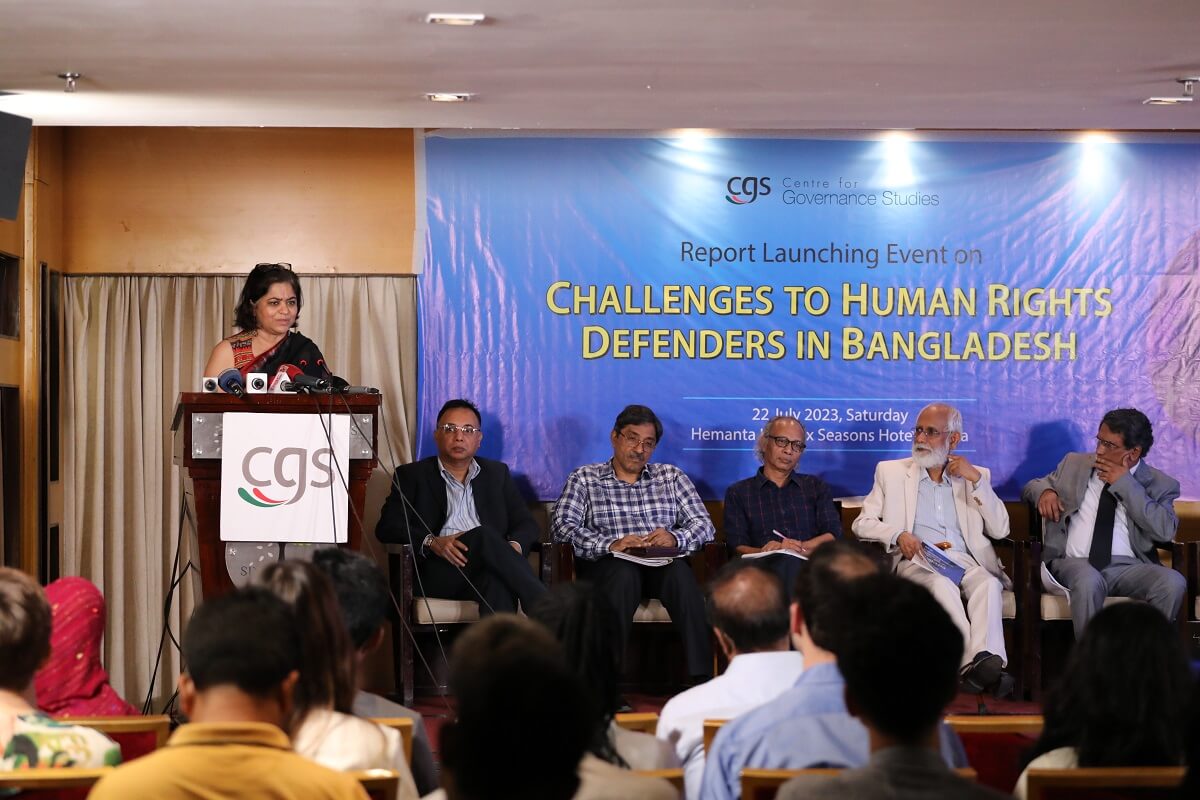
Advocate Z.I. Khan Panna, Chairman of Ain o Salish Kendra, emphasized in his speech the vital importance of the rule of law for effective governance and the protection of human rights defenders. He claimed that democracy in our nation is in auction, implying that individuals with financial resources have the ability to purchase nominations and secure election as Members of Parliament. The three entities that evoke the most fear among humans are doctors, courts, and the police. He eloquently expressed that the police and bureaucrats govern the country rather than politicians. Being a freedom fighter, he remains optimistic about the eventual establishment of the rule of law in our nation, which would lead to the creation of a fearless society.
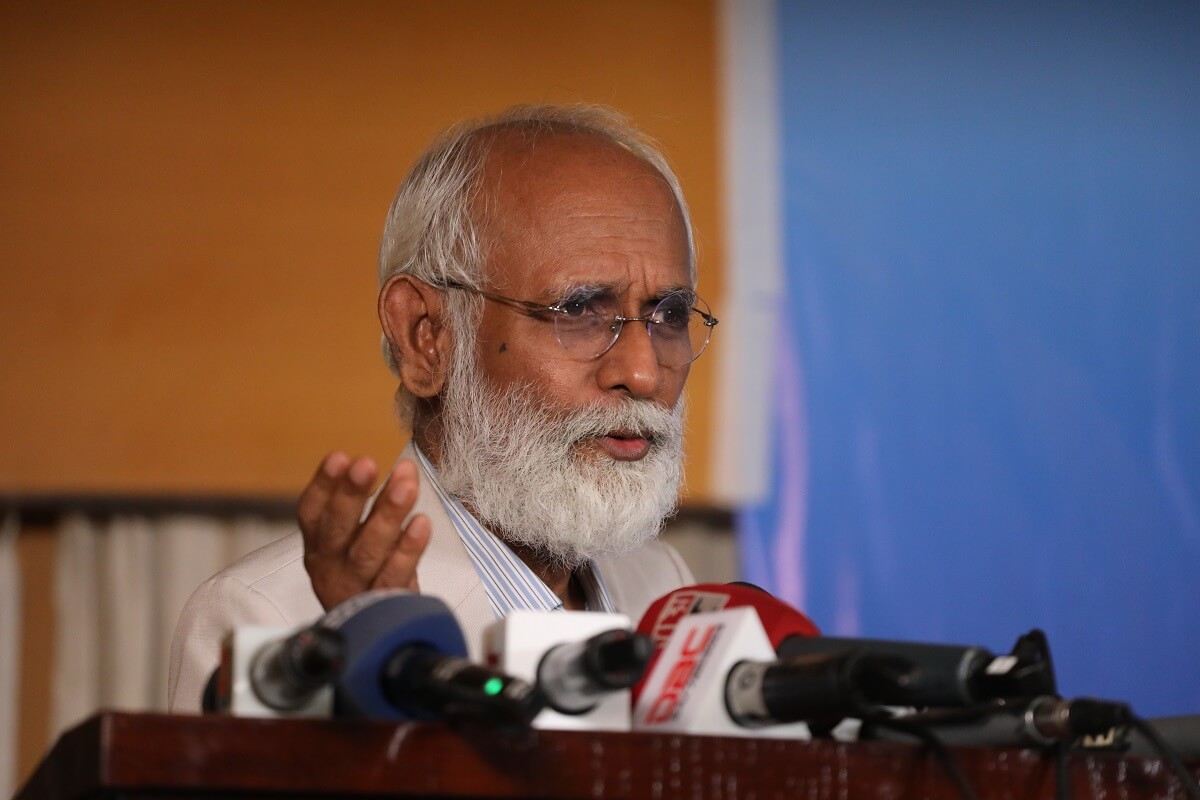
Dr. Kamal Uddin Ahmed, Chairman of the National Human Rights Commission, expressed his admiration for the report. He stated that the NHRC serves as an advisory body responsible for monitoring and reporting instances of human rights violations throughout the country. He further asserted that the belief that NHRC is a government entity is incorrect. Prime media likely do not cover the activities of the NHRC. The NHRC has entered into Memoranda of Understanding (MoUs) with various organizations, including TIB, BLAST, and Article 19. They collaborated and engaged in cooperation with one another. He eloquently expressed that certain organizations failed to uphold human rights and instead engaged in rent-seeking behavior. In his speech, he advocated for engaging in dialogue as a means of informing individuals about the right situations.
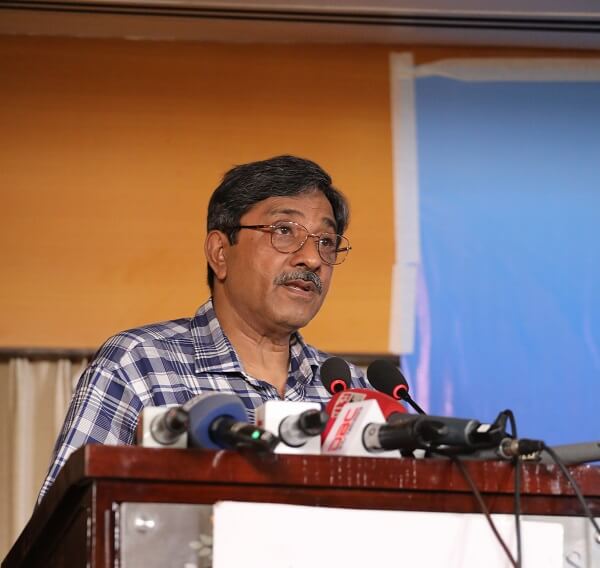
In his speech, Nurul Kabir, the Editor of New Age, emphasized the need to halt extrajudicial killings and custodial torture, avoid intimidation of human rights defenders, and safeguard the freedom of newspapers. He highlighted the NHRC's weakness in lacking the government's obligation to consider the suggestions and recommendations put forth by the NHRC. He anticipated that human rights concerns would be safeguarded through the application of the rule of law, rather than being subject to politicization.
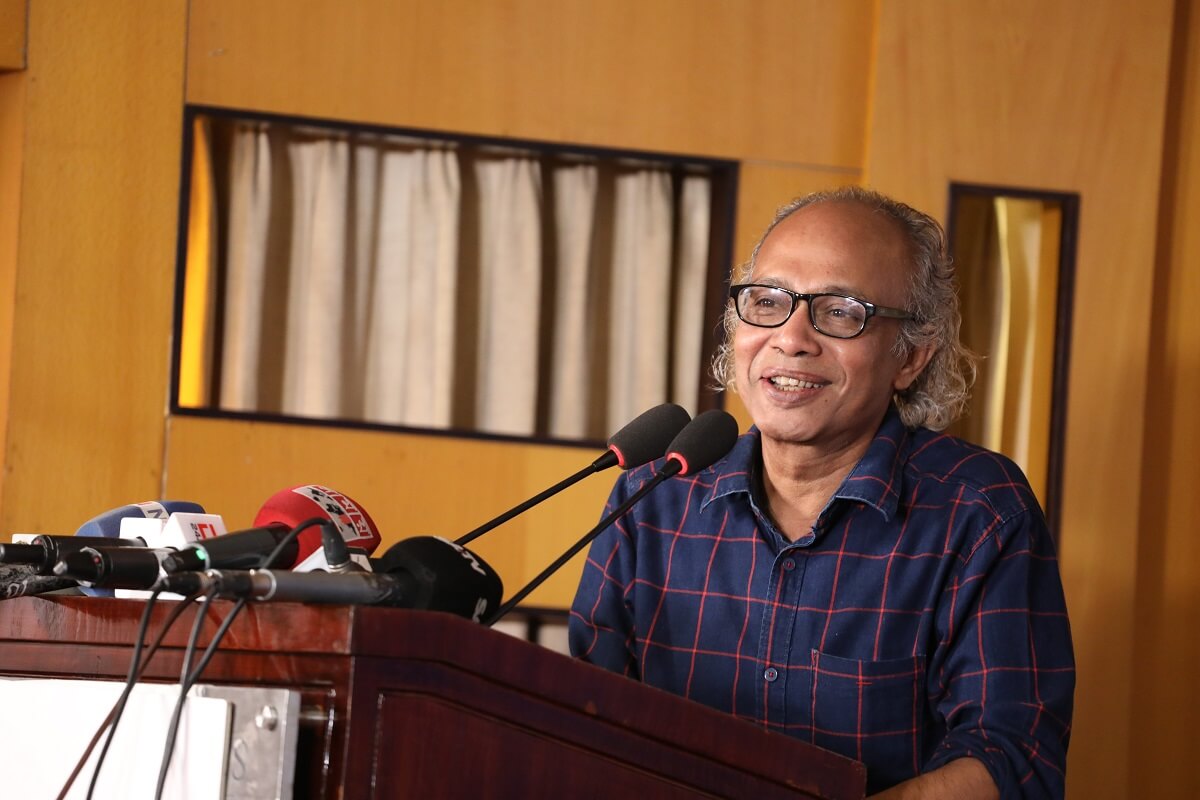
In the conclusion, Dr. Ali Riaz addressed the concerns raised by Dr. Kamal Uddin Ahmed and Barrister Sara Hossain regarding the methodology section of the report. He provided clear information regarding the report's sample size and sampling methodology. He stated that the issue of human rights and related questions is inherently political. This report examined the state of human rights in our country as observed by grassroots and national human rights defenders. Furthermore, he stated that governments perceive human rights organizations as adversaries, employing state agencies to target and undermine human rights defenders. He concluded by emphasizing the importance of collective action in safeguarding human rights.
